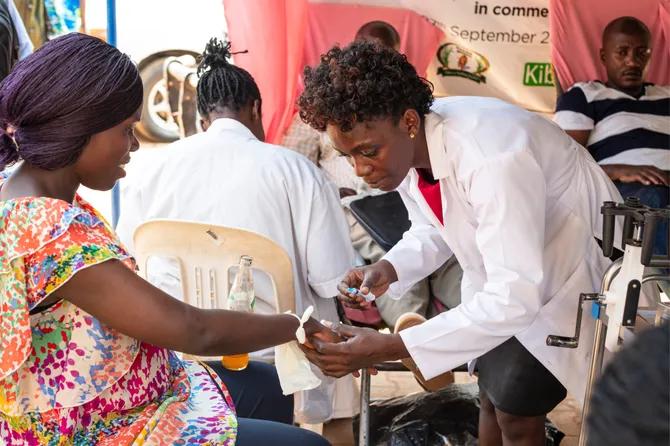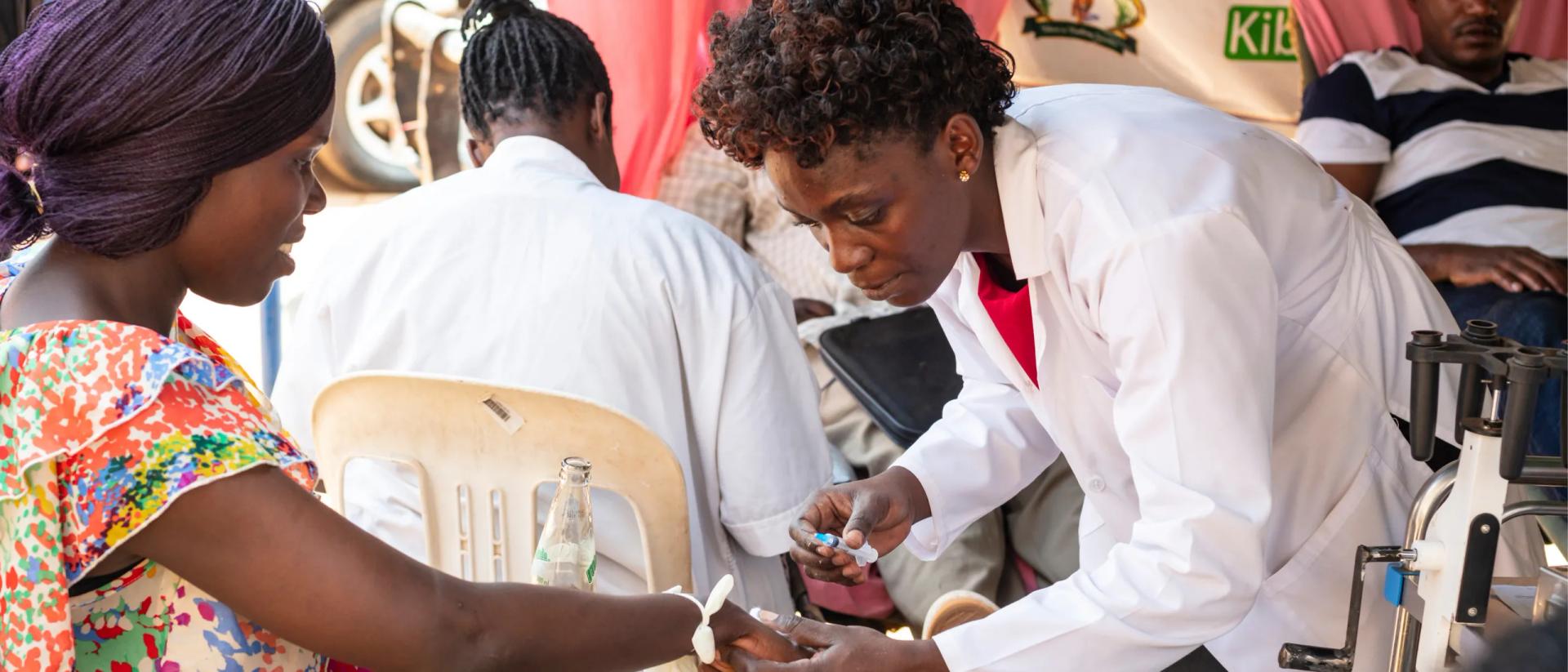Benin
Health
Training dogs to detect breast cancer, a method for screening disadvantaged women in Benin
Impact
News and Insights
Lead-based paint is still widespread for domestic use in Côte d’Ivoire and is considered one of the major sources of metal exposure for children. To detect its presence in houses and to raise awareness among households on the health risks associated with lead, the Institute for Research and Development (IRD) has developed a test for families in Abidjan. FID’s funding supports the deployment of the kits that will be used to assess the extent of the lead paint problem in Abidjan’s homes.
Project ported by:


WHO (World Health Organization) classifies lead as one of the ten chemicals raising most serious concern for public health, specifically for children and women of childbearing age.
Young children are especially vulnerable to the toxic effects of lead, which can have serious and irreversible consequences on their health.
Analyses conducted in different African countries have shown that current levels of lead exposure are often high and this is most likely to be the case in Abidjan, due in particular to the presence of lead in paint used in houses.
In order to reduce the exposure of pregnant women and young children to lead toxicity in homes in Abidjan, IRD has planned a research protocol allowing households to test their own environment using simple kits that can detect the presence of the metal in different rooms of a house. It is complemented by information on the health risks associated with lead poisoning and possible corrective measures.
FID funding opens the possibility of measuring the real presence of lead in private homes by quantifying the levels contained in the paint and in children’s blood. At the same time, the surveys assess the motivation of families in testing their environment.
The research protocol was structured around four successive visits targeting/including 200 pregnant women, with or without children, selected by five partner research centers involved in the project. Each visit aimed to progressively and jointly collect various types of data and conduct specific activities:
The results of the impact study are conclusive, particularly regarding changes in parental attitudes and the effectiveness of the kit in detecting the presence of lead.
Presence of Lead in Households Self-tests revealed the presence of lead **in one-third of all households **surveyed among the 200 women, primarily in paint but also in certain household items such as cooking utensils.
Knowledge About Lead
Kit Reliability and Use
Preventive Measures
The proportion of women who reported knowing at least one way to prevent childhood lead poisoning increased **from 66% during the first visit to 100% **during the third.
Projects
Projects funded by FID